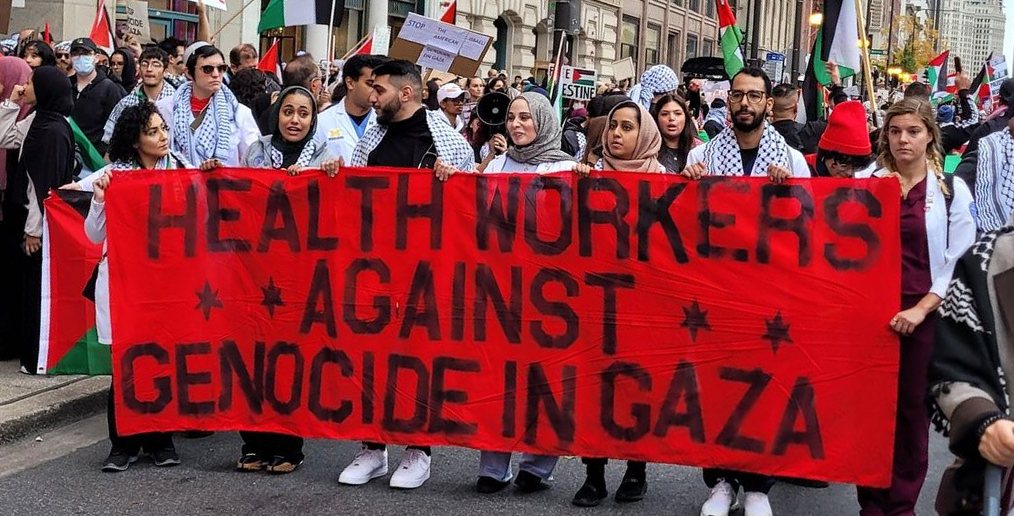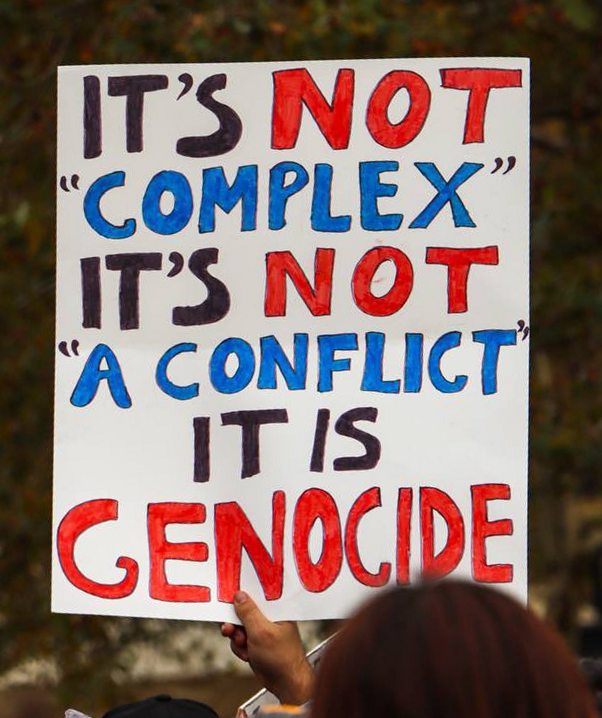For Your Information
Defining Genocide

Chicago, October 21, 2023
The Convention on the Prevention and Punishment of the Crime of Genocide, or the Genocide Convention, is an international treaty that criminalizes genocide and obligates state parties to pursue the enforcement of its prohibition. It is an instrument of international law that codified for the first time the crime of genocide.
 The Genocide Convention was the
first human rights treaty adopted by the General Assembly of the
United Nations on December 9, 1948 and signified the
international community's commitment to 'never again' after the
atrocities committed during the Second World War. Its adoption
marked a crucial step towards the development of international
human rights and international criminal law as we know it today.
The Genocide Convention was the
first human rights treaty adopted by the General Assembly of the
United Nations on December 9, 1948 and signified the
international community's commitment to 'never again' after the
atrocities committed during the Second World War. Its adoption
marked a crucial step towards the development of international
human rights and international criminal law as we know it today.
According to the Genocide Convention, genocide is a crime that can take place both in time of war as well as in time of peace. The definition of the crime of genocide, as set out in the Convention, has been widely adopted at both national and international levels, including in the 1998 Rome Statute of the International Criminal Court (ICC).
Importantly, the Convention establishes on State Parties the obligation to take measures to prevent and to punish the crime of genocide, including by enacting relevant legislation and punishing perpetrators, "whether they are constitutionally responsible rulers, public officials or private individuals" (Article IV). That obligation, in addition to the prohibition not to commit genocide, have been considered norms of international customary law and therefore, binding on all States, whether or not they have ratified the Genocide Convention.
The Genocide Convention has been ratified or acceded to by 153 States (as of April 2022). The other 41 United Nations Member States have yet to do so. Of those, 18 are from Africa, 17 from Asia and six from America. Canada signed the Convention on November 28, 1949 and ratified it on September 3, 1952. The United States signed on December 11, 1948 and ratified it on November 25, 1988. It records the following reservations and understandings:
Reservations:
"(1) That with reference to article IX of the Convention, before any dispute to which the United States is a party may be submitted to the jurisdiction of the International Court of Justice under this article, the specific consent of the United States is required in each case.
"(2) That nothing in the Convention requires or authorizes legislation or other action by the United States of America prohibited by the Constitution of the United States as interpreted by the United States."
Understandings:
"(1) That the term 'intent to destroy, in whole or in part, a national, ethnical, racial, or religious group as such' appearing in article II means the specific intent to destroy, in whole or in substantial part, a national, ethnical, racial or religious group as such by the acts specified in article II.
"(2) That the term 'mental harm' in article II(b) means permanent impairment of mental faculties through drugs, torture or similar techniques.
"(3) That the pledge to grant extradition in accordance with a state's laws and treaties in force found in article VII extends only to acts which are criminal under the laws of both the requesting and the requested state and nothing in article VI affects the right of any state to bring to trial before its own tribunals any of its nationals for acts committed outside a state.
"(4) That acts in the course of armed conflicts committed without the specific intent required by article II are not sufficient to constitute genocide as defined by this Convention.
"(5) That with regard to the reference to an international penal tribunal in article VI of the Convention, the United States declares that it reserves the right to effect its participation in any such tribunal only by a treaty entered into specifically for that purpose with the advice and consent of the Senate."
Israel signed the Convention on August 17, 1949 and ratified it on March 9, 1950.
Israeli historian Raz Segal published an article in Jewish Currents entitled "A Textbook Case of Genocide: Israel has been explicit about what it is carrying out in Gaza. Why isn't the world listening?" Segal points out that at least three of the five acts stated in the 1948 United Nations Genocide Convention are being carried out at this moment in Gaza: 1. Killing members of the group. 2. Causing serious bodily and mental harm to members of the group. 3. Deliberately inflicting on the group conditions of life calculated to bring about its physical destruction in whole or in part.
This article was published in

Volume 53 Number 23 - November 2023
Article Link:
https://cpcml.ca/Tmlm2023/Articles/MS532315.HTM
Website: www.cpcml.ca Email: editor@cpcml.ca

